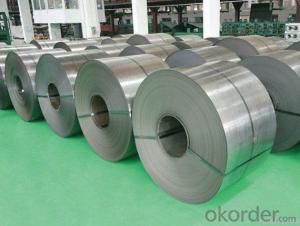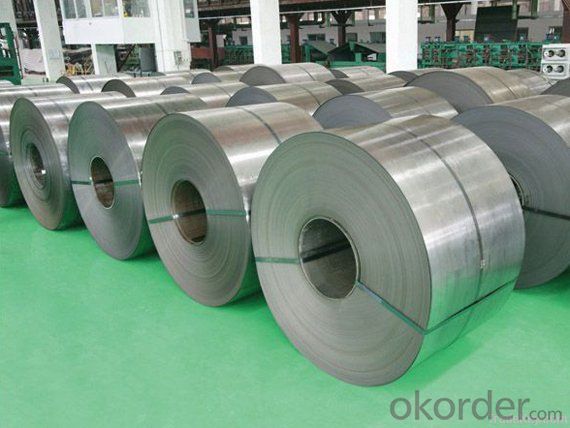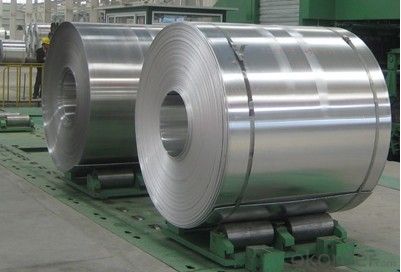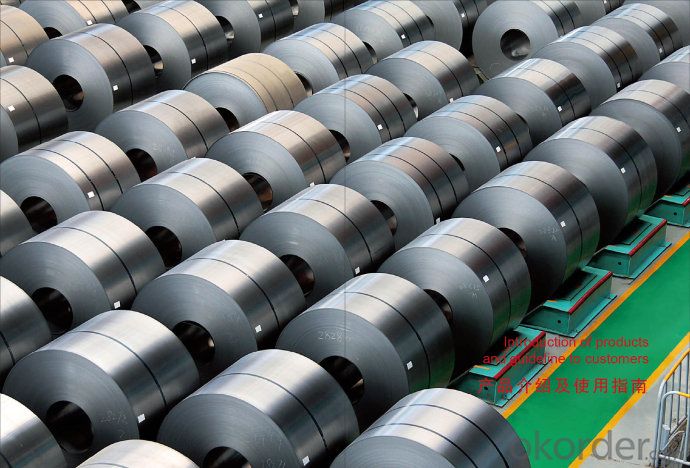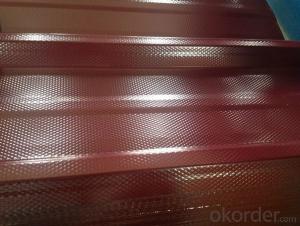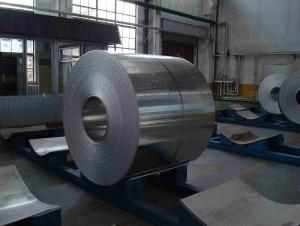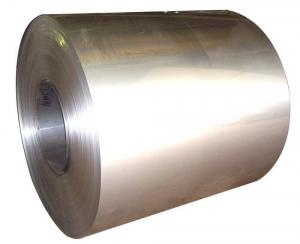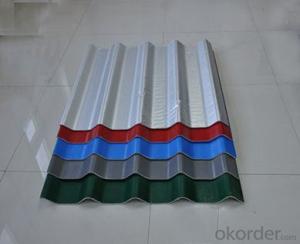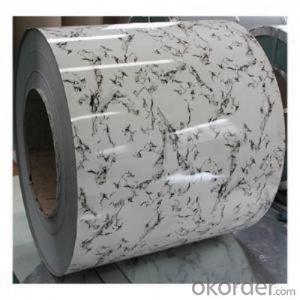032 Painted Aluminum Coil - Roofing Aluminium Coil and Sheet 1050 1100 3003 H14 H24 H16
- Loading Port:
- Tianjin
- Payment Terms:
- TT OR LC
- Min Order Qty:
- 100 m.t
- Supply Capability:
- 10000 m.t/month
OKorder Service Pledge
OKorder Financial Service
You Might Also Like
Specification
roofing aluminium coil and sheet 1050 1100 3003 H14 H24 H16
Quick Details
1. aluminum coil
2. Free samples can be provided for you to test.
3. Size: thickness: 0.2--10mm/width: 90--2500mm
4. alloy: 1050 1060 1070 1100 3003 5052
5. The specification can be produced by your requirements.
Aluminum Coil Discription
1. | Item | aluminium coil | |
2. | Standard | ASTM B221M, GB/T 3191, JIS H4040, etc. | |
3. | alloy | 1050 1200 1060, 1100, 1200, 3003, 3004 | |
4. | Temper | O H12 H14 H16 H18 H19 H22 H24 H26 H28 | |
5. | Specifications | thickness | 0.2--10mm |
Width | 90--2200mm | ||
Coil ID | 505mm 508mm 605mm 405mm 610mm 300mm | ||
6. | Surface | Mill finish, polished, mirror finish anodizing, brushing, sand blasting, powder coating, etc. | |
7. | Price Term | Ex-work, FOB, CIF , CFR, etc. | |
8. | Payment Term | T/T, L/C | |
9. | Delivery Time | According to order’s quantity. | |
10. | Package | Export standard package: bundled wooden box, suit for all kinds of transport, or be required. | |
11. | Application | 1) Kitchenware, food and chemical products processing and storage devices; 2) Aircraft fuel tanks, oil pipe, rivets, wire; 3) Cans cover, car body panels, steering plates, stiffeners, brackets and other components; 4) Manufacturing trucks, tower building, ship, train, furniture, machinery parts, precision machining with the tubes, rods, shaped, sheet metal. | |
12. | Contact | If you have any question, please feel free contact Lula. | |
Chemistry Composition & Mechanical Properties
Chemistry Composition of aluminium coil | |||||||||
alloy | Si | Fe | Cu | Mn | Mg | Cr | Zn | Ti | Al |
1050 | 0.250 | 0.400 | 0.050 | 0.050 | 0.050 | - | 0.050 | 0.030 | 99.5 |
1060 | 0.250 | 0.350 | 0.050 | 0.030 | 0.030.- | - | 0.050 | 0.030 | 99.6 |
1070 | 0.200 | 0.250 | 0.040 | 0.030 | 0.030 | - | 0.040 | 0.030 | 99.7 |
1100 | Si+Fe:0.95 | 0.05-0.2 | 0.050 | - | - | 0.100 | - | 99.0 | |
1200 | Si+Fe:1.00 | 0.050 | 0.050 | - | - | 0.100 | 0.100 | 99.0 | |
1145 | Si+Fe:0.55 | 0.050 | 0.050 | 0.050 | - | 0.050 | - | 99.45 | |
3003 | 0.600 | 0.700 | 0.05-0.20 | 1.0-1.5 | - | - | 0.100 | - | remains |
3004 | 0.300 | 0.700 | 0.250 | 1.0-1.5 | 0.8-1.3 | - | 0.250 | - | remains |
Our services
Main Services:
> Precision aluminum plate
> Casting products
> Forging products
Special Services:
> Alloy selection
> Aluminum machining techniques
> Hot working
> Surface treatment
Our Promise
---High quality stainless steel with reasonable price.
---Wide excellent experiences with after-sale service.
---Every process will be checked by responsible QC.
---Professional packing teams which keep every packing safely.
---Trial order can be done in one week.
---Samples can be provided as your requirements.
FAQ
Q: Do you have the CE, TUV, UL Certification?
A: We’ve already passed all the tests, and any certificate is available.
Q: Have you ever sold your products to companies in my country?
A: Of course, we have customers in all general PV markets, but I think we should expand our market share along with the market growth.
Q: How do you pack your products?
A: We have rich experience on how to pack to make sure the safety on shipment when it arrives at the destination.
Q: Can you do OEM for us?
A: Yes, we can.
Q: Can we visit your factory?
A: Surely, I will arrange the trip basing on your business schedule.
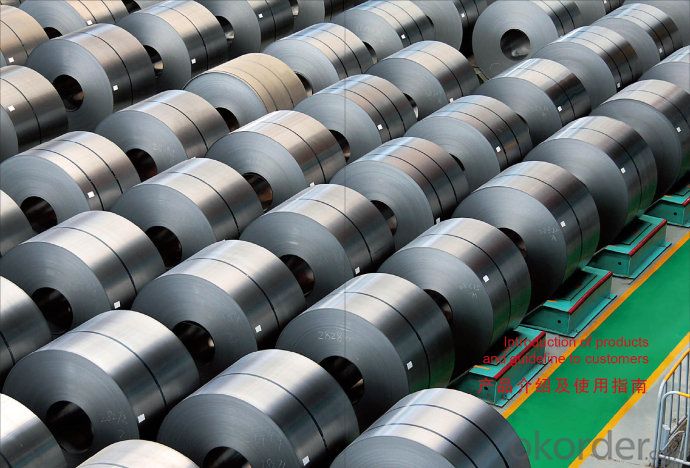
- Q: How are aluminum coils tested for dimensional accuracy?
- Various methods are used to test the dimensional accuracy of aluminum coils to ensure they meet the required specifications. One method commonly employed is the use of specialized equipment like calipers, micrometers, and digital measuring devices. These tools enable precise measurement of the coils' width, thickness, and length. During the testing process, a sample coil is chosen and measured at different points along its length to detect any variations or deviations from the specified dimensions. This helps identify any potential issues with the coil's dimensional accuracy. In addition to manual measurements, advanced technologies such as laser scanning systems and optical sensors are also utilized. These technologies allow for non-contact measurements, resulting in faster and more accurate assessments of the coil's dimensions. Laser scanners create a digital representation of the coil's surface, which can then be compared to the desired specifications to determine the presence of any deviations. Furthermore, computerized systems are employed to analyze the collected data and generate detailed reports. These reports provide comprehensive information about the coil's dimensional accuracy, highlighting any discrepancies from the required standards. This data analysis enables manufacturers to promptly identify and address any potential problems. In conclusion, stringent testing procedures are applied to aluminum coils to ensure their dimensional accuracy. The combination of manual measurements, advanced technologies, and computerized analysis provides a thorough assessment of the coils' dimensions. This enables manufacturers to maintain high-quality standards and deliver products that meet the precise specifications demanded by various industries.
- Q: Are aluminum coils suitable for architectural louvers?
- Indeed, architectural louvers can be constructed using aluminum coils as they possess remarkable corrosion resistance, a lightweight composition, and a commendable strength-to-weight ratio. The malleability and manipulability of aluminum coils grant them the ability to be effortlessly shaped and fabricated into diverse forms and dimensions, thereby rendering them exceptionally suitable for fashioning aesthetically appealing and practical louvers. Moreover, the robustness of aluminum guarantees that the louvers will endure severe weather conditions and retain their structural integrity for an extended period. In conclusion, aluminum coils serve as a dependable and adaptable material choice for architectural louvers.
- Q: What are the properties of aluminum coils?
- Aluminum coils are highly sought after in various industries due to their numerous key properties. Firstly, they possess a high strength-to-weight ratio, which means they are both lightweight and durable. This makes them ideal for industries like aerospace, where reducing weight is crucial. Furthermore, aluminum coils exhibit exceptional corrosion resistance. The formation of a thin oxide layer on the metal surface prevents further oxidation, making them suitable for outdoor and marine environments. This corrosion resistance also extends their lifespan, reducing maintenance costs. Another important property of aluminum coils is their high thermal conductivity. This allows for efficient heat transfer, making them well-suited for applications in the HVAC industry. Additionally, they have excellent electrical conductivity, making them favorable for use in electrical and electronic components. Aluminum coils are also highly malleable and ductile, allowing for easy shaping and forming. This versatility makes them popular in manufacturing processes, such as the production of automobile parts, cans, and packaging materials. Lastly, aluminum coils are known for their recyclability. They can be easily melted down and reused without compromising their quality, making them an environmentally friendly choice. This aligns with the increasing focus on sustainability and reducing the environmental impact of industries. In conclusion, aluminum coils possess valuable properties such as high strength-to-weight ratio, corrosion resistance, thermal and electrical conductivity, malleability, and recyclability. These properties make them valuable in numerous applications across various industries.
- Q: How are aluminum coils used in the automotive industry?
- Due to their numerous advantages over traditional materials, aluminum coils play a crucial role in the automotive industry. They are widely used in various parts and components of vehicles, enhancing performance, improving fuel efficiency, and reducing overall weight. A primary application of aluminum coils in the automotive industry is in the manufacturing of heat exchangers, such as radiators and condensers. Aluminum's excellent thermal conductivity enables efficient heat transfer, regulating engine temperature and optimizing performance. By incorporating aluminum coils in heat exchangers, vehicles can achieve better cooling efficiency, preventing engine overheating and maintaining optimal operating conditions. Furthermore, aluminum coils are utilized in the production of air conditioning systems, specifically in the condenser and evaporator units. These coils have excellent heat exchange capabilities, enabling efficient cooling or heating of the vehicle's interior. As a result, vehicles equipped with aluminum coil-based air conditioning systems can provide a comfortable environment for passengers while minimizing energy consumption. Moreover, aluminum coils are used in constructing lightweight body panels and structural components like doors, hoods, roofs, and chassis. Aluminum's high strength-to-weight ratio makes it ideal for reducing vehicle weight without compromising structural integrity. This weight reduction leads to improved fuel efficiency, reduced emissions, and enhanced performance in acceleration, handling, and braking. Additionally, aluminum coils find application in producing electrical systems in automobiles. Their excellent electrical conductivity makes them suitable for wiring harnesses, connectors, and other electrical components. The use of aluminum coils in these systems ensures efficient transmission of electrical signals and reduces overall vehicle weight, contributing to improved fuel economy. In conclusion, aluminum coils are extensively used in the automotive industry for various purposes, including heat exchangers, air conditioning systems, body panels, and electrical components. The exceptional properties of aluminum, such as thermal conductivity, strength-to-weight ratio, and electrical conductivity, enable automakers to produce lighter, more efficient, and environmentally friendly vehicles.
- Q: How do aluminum coils contribute to sustainable transportation?
- Aluminum coils play a crucial role in promoting sustainability in transportation through several means. Firstly, the lightweight nature of aluminum makes it a perfect choice for various vehicle components, replacing heavier materials like steel. This substitution reduces the overall weight of the vehicle, consequently enhancing fuel efficiency and minimizing greenhouse gas emissions. Furthermore, the inclusion of aluminum coils in vehicle manufacturing enhances the vehicle's durability and longevity. Aluminum's excellent resistance to corrosion proves especially beneficial in areas with harsh weather conditions or high levels of road salt. The extended lifespan of vehicles constructed with aluminum coils results in reduced repair requirements and replacements, thereby minimizing waste generation and resource consumption throughout the vehicle's lifetime. Additionally, the recyclability of aluminum significantly contributes to sustainable transportation. As one of the most recyclable materials worldwide, nearly 75% of all aluminum ever produced remains in use today. Manufacturers can incorporate recycled aluminum into their production processes by utilizing aluminum coils, thereby reducing the need for primary aluminum extraction. This practice not only conserves natural resources but also mitigates energy consumption and greenhouse gas emissions associated with aluminum production. Moreover, aluminum coils support sustainable transportation by enabling the advancement of electric vehicles (EVs). The lightweight nature of aluminum aids in improving the energy consumption and overall efficiency of EVs. Furthermore, the exceptional thermal conductivity of aluminum facilitates better heat dissipation in EV batteries, resulting in enhanced performance and longevity. In summary, the utilization of aluminum coils in transportation contributes to sustainability efforts by reducing vehicle weight, enhancing fuel efficiency, increasing durability, promoting recycling, and facilitating the growth of electric vehicles. As the transportation sector continues to strive for emission reduction and increased efficiency, aluminum coils will remain a vital component in achieving these sustainability goals.
- Q: Are aluminum pie pans and aluminum foil considered green products? They are most certainly recyclable. Thanks.?
- bbbbbb
- Q: How do aluminum coils contribute to energy-efficient HVAC systems?
- The role of aluminum coils in making HVAC systems energy-efficient is crucial. Firstly, aluminum is an exceptional heat conductor, enabling efficient heat transfer between different areas. In HVAC systems, aluminum coils are utilized in the condenser and evaporator units to facilitate the heat exchange process. In the condenser unit, the hot refrigerant vapor from the compressor passes through the aluminum coils. Due to the coils' high thermal conductivity, the heat is rapidly dissipated to the surrounding air, allowing the refrigerant to condense and release the heat energy. This effective heat transfer enhances the cooling performance of the HVAC system. Similarly, in the evaporator unit, the aluminum coils are responsible for absorbing heat from the indoor air. The cold refrigerant inside the coils absorbs the heat, resulting in the air cooling down. Ultimately, the cooled air is circulated back into the room. The superior thermal conductivity of aluminum enables quick heat absorption, improving the overall cooling efficiency of the HVAC system. Moreover, aluminum coils offer an energy-saving advantage by being lightweight. Compared to traditional copper coils, aluminum coils reduce the overall weight of the HVAC system. This weight reduction leads to lower energy consumption by the system's fan and compressor, as they require less effort to move the air and refrigerant throughout the system. Additionally, aluminum coils are highly resistant to corrosion, which prolongs the lifespan of the HVAC system. Corrosion can hinder heat transfer efficiency and result in refrigerant leaks, causing the system to consume more energy. By utilizing aluminum coils, the risk of corrosion is minimized, ensuring long-term energy efficiency. In conclusion, aluminum coils enhance the energy efficiency of HVAC systems by improving heat transfer efficiency, reducing overall system weight, and providing corrosion resistance. These factors collectively contribute to the effective operation of HVAC systems, consuming less energy while maintaining optimal indoor comfort.
- Q: Can aluminum coils be used in the production of aircraft fuel tanks?
- Aluminum coils, with their lightweight and durable nature, find application in the creation of aircraft fuel tanks. They are commonly employed in the aerospace industry due to their impressive strength-to-weight ratio. Furthermore, their corrosion-resistant properties make them an ideal choice for fuel tanks, as they can withstand the harsh conditions and chemicals present in aviation fuel. The utilization of aluminum coils enables efficient manufacturing processes, as they can be easily shaped and welded into the desired tank form. Moreover, aluminum possesses excellent thermal conductivity, aiding in the dissipation of heat generated during flight and preventing fuel overheating. In conclusion, aluminum coils are a fitting and extensively utilized material in the production of aircraft fuel tanks.
- Q: How do aluminum coils contribute to the durability of structures?
- Aluminum coils contribute to the durability of structures due to their inherent properties such as corrosion resistance, lightweight nature, and high strength-to-weight ratio. These coils, when properly installed, form a protective layer on the structure, shielding it from environmental factors like moisture, UV rays, and temperature variations. This corrosion resistance ensures that the structure remains intact and free from rust, extending its lifespan. Additionally, the lightweight nature of aluminum coils reduces the load on the structure, making it less prone to stress and allowing for easier installation. Overall, the use of aluminum coils enhances the durability of structures by providing long-lasting protection and structural integrity.
- Q: What are the different protective film options for aluminum coils?
- There are several protective film options available for aluminum coils, each offering specific benefits and suitability for different applications. Some common options include: 1. PVC (Polyvinyl Chloride) Film: PVC films are widely used for protecting aluminum coils due to their excellent resistance to moisture, chemicals, and abrasion. They provide a high level of surface protection and are available in various thicknesses and adhesive strengths. 2. PE (Polyethylene) Film: PE films are another popular choice for protecting aluminum coils. They offer good resistance to moisture and UV radiation and are generally more cost-effective than PVC films. PE films are available in different grades, including low-density polyethylene (LDPE) and linear low-density polyethylene (LLDPE). 3. PP (Polypropylene) Film: PP films are known for their excellent tear resistance and high tensile strength. They provide good protection against mechanical damage and are suitable for applications where coils may undergo rough handling or transportation. 4. PET (Polyethylene Terephthalate) Film: PET films offer outstanding clarity and transparency, making them ideal for applications where visual inspection of the coils is required. They also provide good resistance to heat, chemicals, and abrasion. 5. Adhesive Coatings: In addition to films, adhesive coatings are sometimes used to protect aluminum coils. These coatings are typically applied directly to the surface of the coil and form a protective layer against moisture, corrosion, and scratching. When selecting a protective film for aluminum coils, it is essential to consider factors such as the intended application, environmental conditions, handling processes, and desired level of protection. Consulting with a supplier or manufacturer can help determine the most suitable option for specific requirements.
Send your message to us
032 Painted Aluminum Coil - Roofing Aluminium Coil and Sheet 1050 1100 3003 H14 H24 H16
- Loading Port:
- Tianjin
- Payment Terms:
- TT OR LC
- Min Order Qty:
- 100 m.t
- Supply Capability:
- 10000 m.t/month
OKorder Service Pledge
OKorder Financial Service
Similar products
Hot products
Hot Searches
Related keywords
